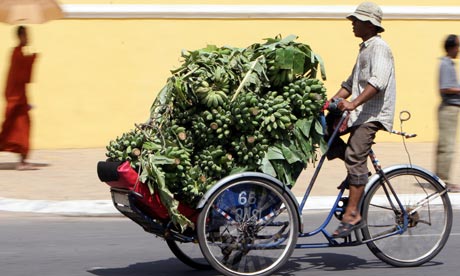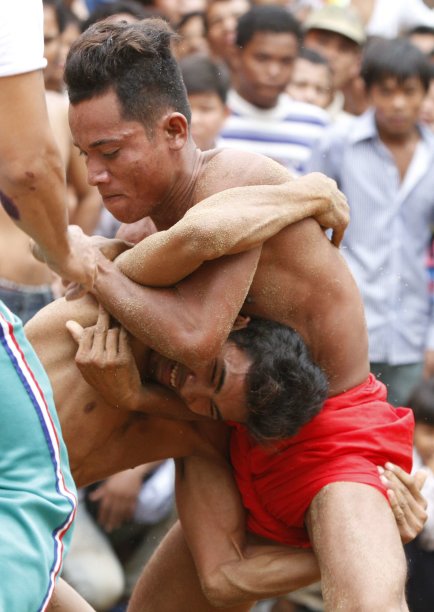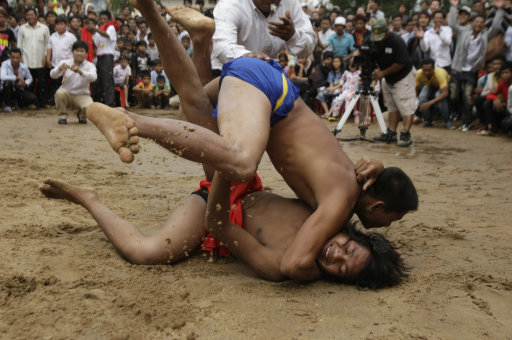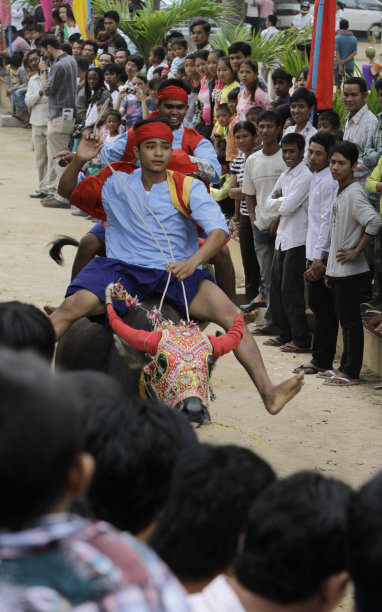By Ian Timberlake
(AFP)
Vietnam has a competing claim with China over sovereignty of the potentially oil-rich Paracel and Spratly island groups (AFP/File, Hoang Dinh Nam)
HO CHI MINH CITY — Nearly four decades after the end of a war which divided Vietnam, a debate over national reconciliation between former foes has been rekindled by tensions with China.
Despite government policies designed to woo its wartime opponents -- many of whom fled abroad -- those linked to the old US-supported regime in South Vietnam still feel stigmatised by communist authorities.
But recent anger at Beijing's perceived aggression in South China Sea territory has led to unprecedented public recognition of southern fighters who stood up to the country's giant northern neighbour.
Vietnam, which has a competing claim with China over sovereignty of the potentially oil-rich Paracel and Spratly island groups, has objected to what it described as Chinese harassment of its ships in the disputed waters.
The issue has stoked nationalist sentiment and in July protesters in Hanoi -- the communist north's historic heartland -- held aloft the names of 74 South Vietnamese troops who died in a 1974 battle with Chinese forces in the Paracels.
It was the first time "there was a kind of honour" for soldiers from the south, said Nguyen Xuan Dien, a Hanoi scholar who joined the anti-China demonstrations, which were unusual in authoritarian Vietnam.
"I think that the state of Vietnam should have done that before the people," said Le Hieu Dang, 67, an underground communist agent in South Vietnam during the war who now works with the Ho Chi Minh City Fatherland Front, a coalition of state-linked social and other organisations.
Inspired by the action in Hanoi, he and other intellectuals in Ho Chi Minh City, formerly Saigon, held their own tribute to all Vietnamese "who died for the territorial integrity of the nation" in battles against China.
A South Vietnamese navy veteran of the Paracels battle said this recognition was "a very good signal".
"These people died protecting the country, not protecting the Saigon regime."
On the edge of Ho Chi Minh City lies a cemetery containing the graves of hundreds of South Vietnam's war dead.
Communist military units based on the burial ground after the war were removed in recent years and the public has been allowed to mourn in private.
But the site bears scant resemblance to an official war memorial -- occasional maintenance has not stopped tall grass from encroaching and while some graves are cared for and adorned with bright flowers, others are moss-covered and crumbling.
Nguyen Manh Hung, a former member of the Saigon government who fled to the United States on the war's final day in 1975, said authorities should turn the site into an official memorial that could attract former veterans.
"Whoever can pull this off and give a speech at the opening ceremony attended by respectable people on both sides of the conflict will have his place in history assured," said Hung of George Mason University in Washington.
He said the nation cannot be genuinely reconciled as long as those who fought for the South continue to be portrayed as unpatriotic "American lackeys", rather than fighters in what was "in a sense, a civil war".
The country was divided into the communist North and US-backed South from the end of French colonial rule in 1954 until April 30, 1975 when northern forces over-ran Saigon.
Hundreds of thousands risked their lives to escape on boats when the war ended. They joined a Vietnamese diaspora that now numbers about four million, many of them in the US, Australia and Europe.
It took until 2004 for the government to recognise Vietnamese expatriates -- called "Viet Kieu" -- as an integral part of the nation.
As the country moves increasingly closer to its former American enemy, it has implemented policies aimed at wooing expatriate talent and capital including rights to property ownership, visa exemptions and dual nationality.
A government spokeswoman said the measures apply to "all overseas Vietnamese regardless of whether they have worked for the previous regime or not", adding that Viet Kieus contribute significantly to the country's development.
But Dang in Ho Chi Minh City said an unwritten law excludes those with links to the South Vietnamese government from Communist Party membership. This effectively prevents them from working in anything but the lowest levels of the civil service or the numerous state-owned companies.
An open letter to the government signed last month by 38 foreign-based Vietnamese scientists and other experts said there remained "widespread suspicion and distrust" of them within Vietnam's leadership.
"The country and people of Vietnam are demanding that their leaders promote national strengths and unity amongst the entire people, inside and outside the country, to meet present dangers," it said, referring to China.
Dang said it is imperative for both sides to work to overcome their suspicions, otherwise "we cannot create the strength" to counter Beijing's power.
"The war has been over for more than 30 years but the national reconciliation issue is still considered a burning one," he said.


















